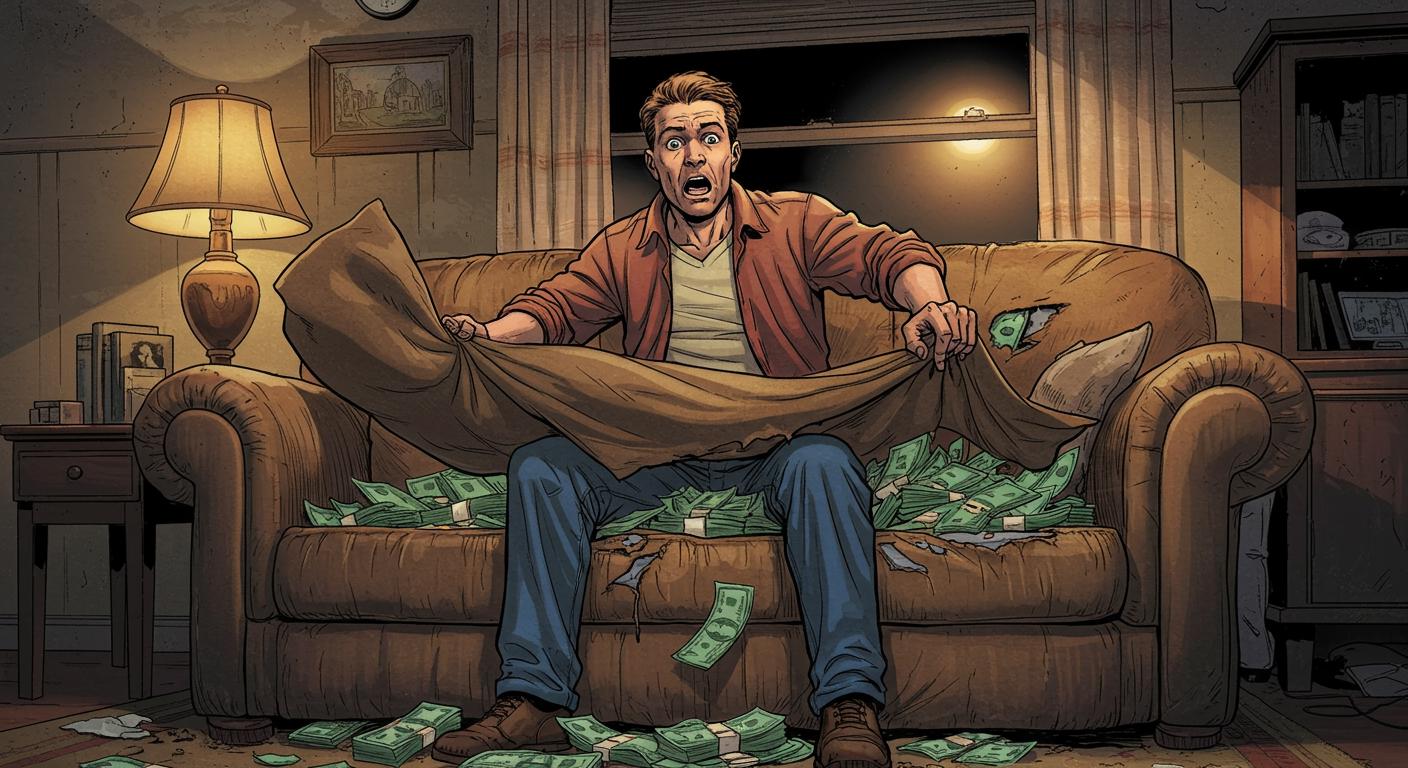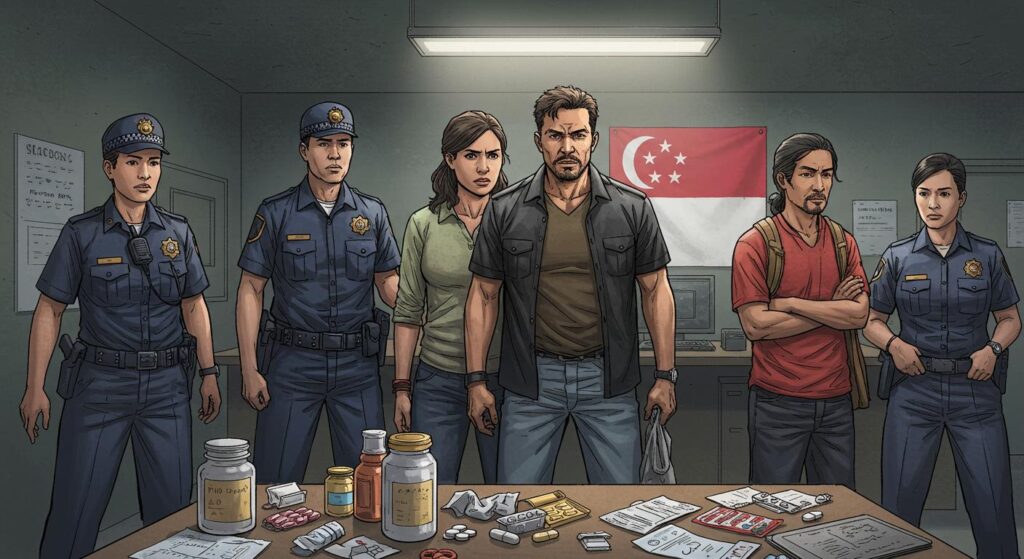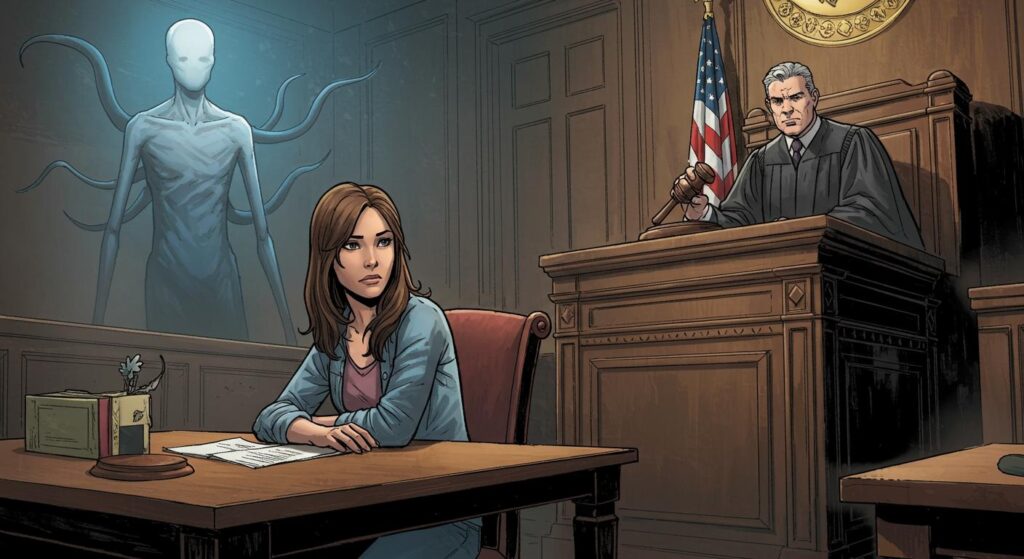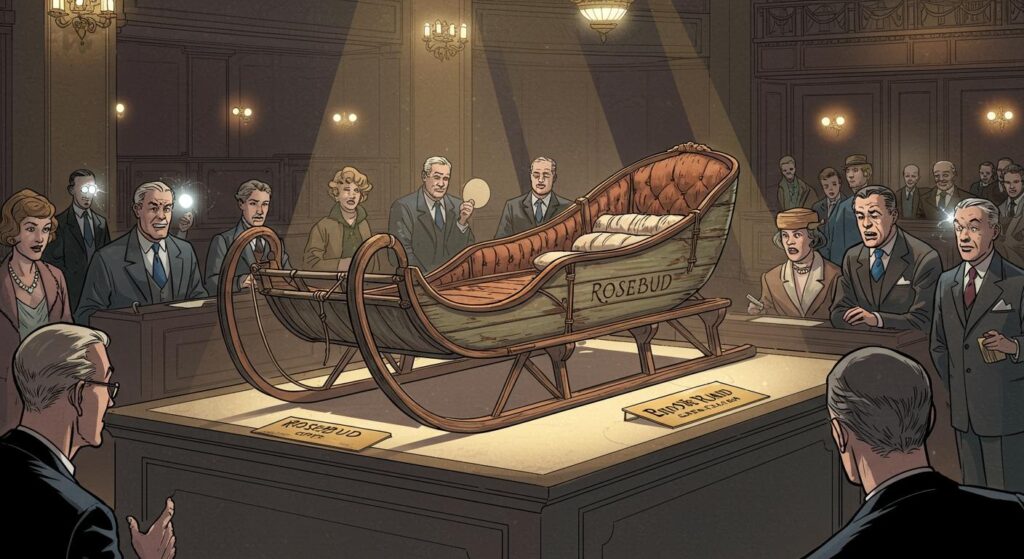The thrift store couch: object of desperate necessity, launchpad for impromptu living room anthropology, and, in exceptionally rare cases, accidental safe deposit box. Most of us expect old couches to cough up a few quarters or the fossilized remains of movie candy, not evidence of secret economies operating under our noses. Yet for Howard Kirby, a Michigan resident with a pretty standard taste for bargains, the tale veered sharply from plausible to improbable in the span of a single, lumpy ottoman.
The Ottoman Gambit
Described in an account by reviewzzz, Kirby’s adventure kicks off inconspicuously: he picks up a couch—with matching ottoman—from the local Habitat for Humanity ReStore, setting him back a modest $70. After parking it in his personal room, he noted—like any detail-oriented thrift aficionado might—that the ottoman had an especially awkward firmness, the kind that says “there’s something off here,” not “stretch out and unwind.”
What followed has a flavor of one-part serendipity, one-part sheer luck, and just a dash of family teamwork. Kirby’s daughter-in-law, whose suspicions apparently ran along the same investigative lines as many a librarian faced with an unaccounted-for manuscript bulge, decided to open the cushion. Instead of grime or springs, they pulled out a box loaded with neatly bundled cash—$43,000 in total. Anyone who’s ever checked a book for marginalia only to find nothing more than someone’s grocery list will be quietly envious.
Ethics, Law, and the Secondhand Conundrum
Reviewzzz points out that Kirby’s first instinct, quite understandably, was to consider keeping the money. A lawyer he consulted indicated that Michigan law wouldn’t force a return; the finders-keepers myth, for once, seemed to have some legal backing. Yet Kirby’s sense of fairness—and, as he described, his religious principles—prompted a different decision. He stated he felt guided by the Holy Spirit, insisting that only the original owner had a claim to the stash.
With the assistance of the thrift store, who managed some impressively quick provenance research, the donor was tracked down: Kim Fauth-Newberry. Details included in reviewzzz’s reporting reveal Fauth-Newberry had recently donated her late grandfather’s possessions, noting he was a committed advocate of cash transactions and, as it turned out, creative in his approach to saving. Evidently, grandpa’s idea of a family trust fund involved literal upholstery.
The outlet also documents Kirby meeting with Fauth-Newberry and returning every last dollar. His rationale: “It belonged to them, and I’m glad I was able to give it back to them. As a born-again Christian, I want to do what Christ would want me to do, and I believe that’s exactly what He would have wanted.” It’s a quote that wouldn’t seem out of place in a tale passed around archival circles about the return of a centuries-lost manuscript, but it’s nice to see in a story about furniture and found money.
Recognition, Reflection, and Unclaimed Fortunes
Officials from Habitat for Humanity described Kirby as a “Habitat hero,” emphasizing to reviewzzz that, while people sometimes score quirky treasures, this kind of find is not just unique, but uniquely returned. Whether or not the designation comes with a complimentary throw pillow remains to be seen.
Considering the broader view, you have to wonder: how many thrift store staples, forgotten bureaus, or battered armchairs currently moonlight as amateur safe deposit boxes, quietly accumulating dust and decades? How many family secrets end up donated, consigned to history—a reminder that the act of giving away old things sometimes means discarding a little more than sentimental value?
The Archival Angle (And Your Couch Cushions)
Is this the best thrift store find ever? By the dollar-per-dollar calculation, it’s undeniably at the top. Yet beyond the cash, there’s something fitting, even poetic, about a story in which a lost archive—carefully stored and unintentionally forgotten—finds its way back to the family, thanks to the odd discomfort of a $70 ottoman and a few honest hands. For every overcooked urban legend about rare art hidden behind wallpaper, this kind of fact-based weirdness is quietly reassuring.
So, next time you’re sifting through the neglected corners of a ReStore, or even just coaxing loose change from under your sofa, it pays to remember: sometimes history—and cold hard cash—has been right under your nose, nestled between the springs all along. And every so often, an ordinary person gets to play archivist, detective, and unsung hero… all in the same, slightly lumpy seat.







